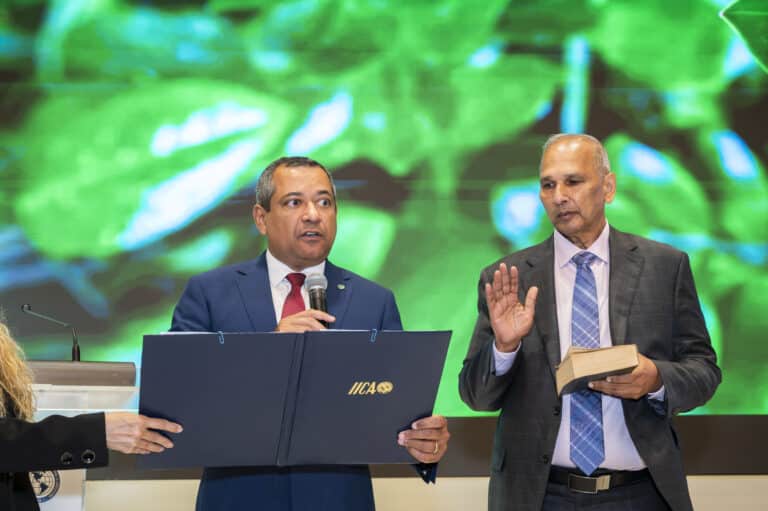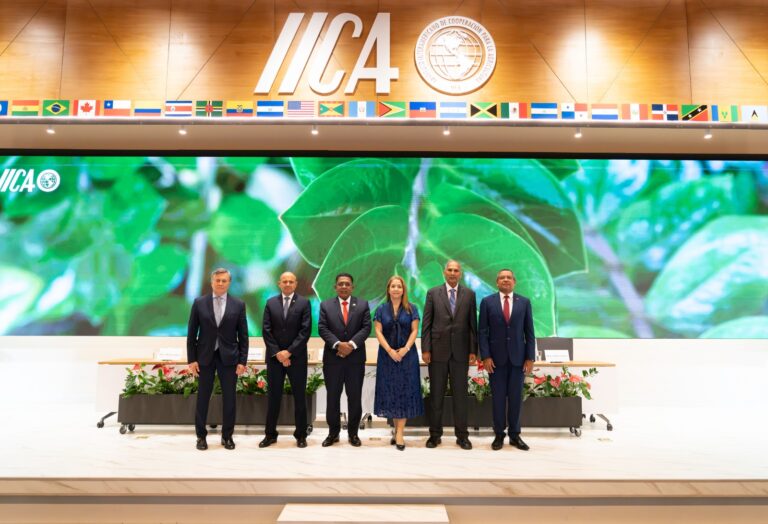The production of biogas will provide those in the family agriculture sector with access to renewable and sustainable sources of energy, which will contribute to their development and to inclusion in rural territories.
San Jose, Costa Rica, August 27, 2014 (IICA). According to a group of researchers gathered in Brazil to study how agriculture, water and energy are linked, the production of biogas, using solid organic waste from agricultural activities, will mean less contamination of water sources and fewer emissions of greenhouse gases, and will increase access to and the use of renewable energies in the rural territories of Latin America and the Caribbean (LAC).
The specialists, from 16 countries of LAC, also mentioned that the use of such waste, especially those derived from food production in the family agriculture sector, could improve social inclusion and development in rural territories.

The meeting was held at the Itaipu Technological Park, the largest hydroelectric plant in the world in terms of energy production. Participants included representatives and researchers from the agriculture, energy and academic sectors of LAC, as well as the Inter-American Institute for Cooperation on Agriculture (IICA), the International Energy Agency (IEA), the Latin American Energy Organization (OLADE), the United Nations Food and Agriculture Organization (FAO) and the United Nations Industrial Development Organization (UNIDO).
According to Orlando Vega, an IICA specialist in the field of renewable energy, “The interdependence of agriculture, water and energy is becoming increasingly apparent; lack of access to any of these elements can limit the sustainable development of rural territories.”
The participants in the meeting issued recommendations calling on the countries of LAC to formulate public policies and regulatory frameworks applicable to the production of biogas which will increase the participation of those in the family agriculture sector.
The meeting included a visit to the Agroenergy Cooperative for Family Agriculture, located in the Ajuricaba river basin, in the municipality of Marechal Candido Rondon, in the State of Parana.
The project involves 33 small-scale farms, all of which have bio-digestors used to produce bio-fertilizers and biogas from residues derived from family agriculture activities.
Part of the biogas is used to generate energy for use on the farms themselves, with the rest being transported via gas pipeline to a central energy plant 22 kilometers away, which then distributes electricity to the local power grid and creates heat for drying grains and biomethane as fuel for vehicles.
Vega explained that the treatment of residues prevents the dumping of pollutants throughout the Ajuricaba river basin and is contributing to extending the life of the Itaipu catchment basin.
In Parana, Oliver Marcelo, the Regional Technical Director of the Alliance in Energy and Environment (AEA), which is an IICA program, shared with the other participants successes to date in improving the rural habitat and in increasing the production-related uses of biogas, in projects in the rural territories of Santander de Quilachao, in Colombia; and the districts ofChancaybaños, La Esperanza, Pulán y Andabamba, in the highlands of Peru.
AEA is implemented by IICA in the countries of the Andean Region, with funding from Finland.
For further information:
orlando.vega@iica.int
oliver.marcelo@iica.int











